From Brazil to Malta, here are 10 'digital nomad visas' open to remote workers who make less than $3,000 a month
Hannah Towey

- Over a dozen countries have recently launched "digital nomad visa" programs for remote workers.
- Applicants who meet the monthly income requirement can work from countries like Brazil and Malta.
1. New Zealand: Minimum funds of NZ$350 a month (around $211) or NZ$4200 a year

While New Zealand doesn't yet offer a long-term digital nomad visa, remote workers of certain nationalities can apply to a "working holiday visa" for one to two year stays. However, if you remain in the country for over 183 days you will be considered a New Zealand tax resident.
In order to apply, you must make a minimum of NZ$350 a month or have NZ$4200 in available funds for a 12 month period, according to the country's tourism agency.
2. Portugal: Minimum yearly salary of €7,200 (around $7,130)
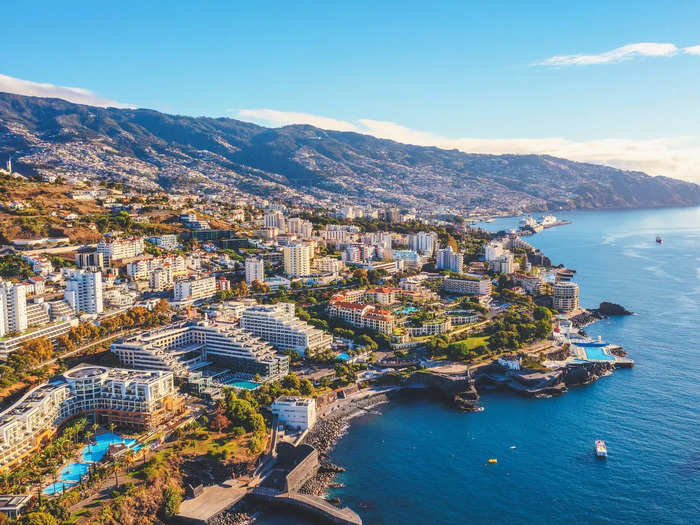
Portugal's D7 visa, also known as the "Portugal Passive Income Visa," is one of the most affordable options for digital nomads. Applicants must make €7,200 per year and have health insurance in order to qualify.
The D7 visa also allows recipients to travel freely throughout the Schengen area, making it one of the most popular visas for remote workers, multiple firms previously told Insider. Recipients can also qualify for a 10-year tax break by becoming a "non-habitual resident," according to the immigration consultancy Belion Partners.
3. Colombia: Minimum monthly income of 3 million COP (around $670)
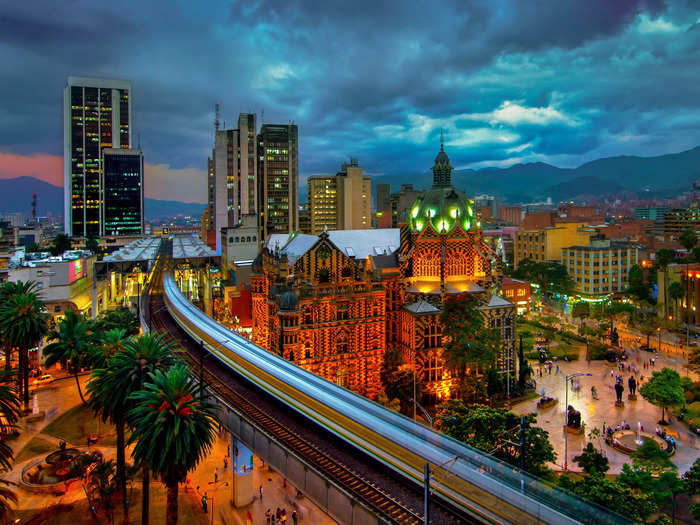
Colombia is scheduled to launch its digital nomad visa on October 22, which will allow foreign nationals to work remotely in the country for up to two years. Entrepreneurs who plan to create a technology start-up in Colombia may also apply.
Applicants must have health insurance a make a minimum of 3 million COP per month (around $670). Local income tax applies to foreigners who reside in Colombia for over 183 days, according to the accounting firm KPMG.
4. Cape Verde: Average bank balance of €1,500 (around $1,490) over the last six months
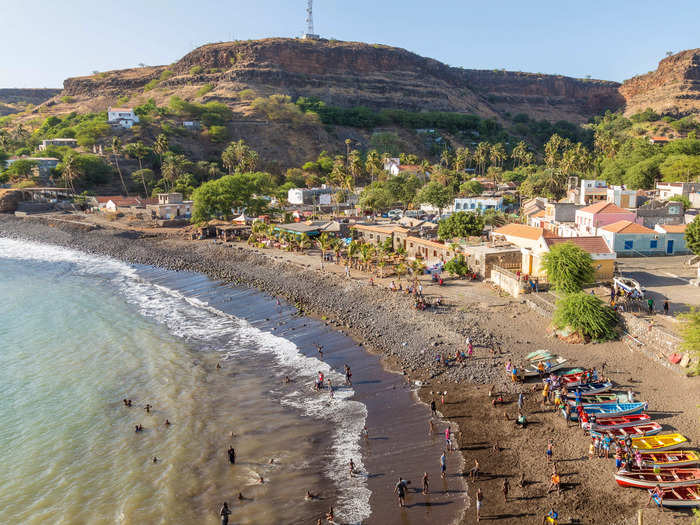
Cape Verde, also called "Cabo Verde" is an island nation located off the Western coast of Africa.
The country's digital nomad visa first launched in 2020 allows remote workers to live on the island for 6 months, with the possibility of renewal up to 12 months.
In order to apply, applicants must submit proof of health insurance and an average bank balance of €1500 ($1,488.27) over the last six months.
5. Brazil: Minimum monthly income of $1,500
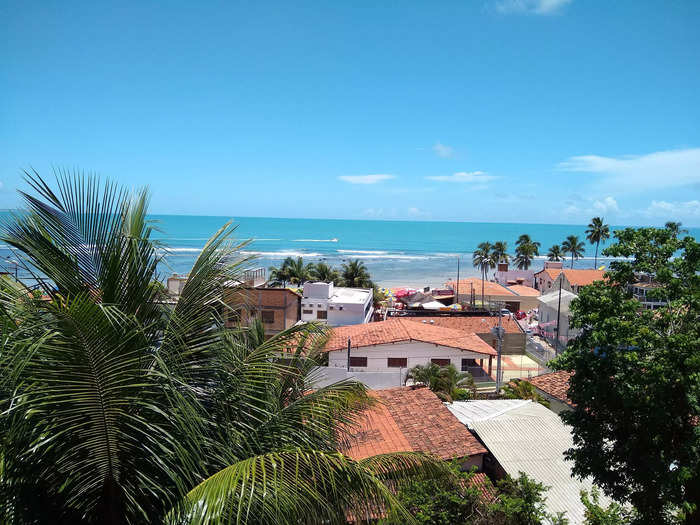
Brazil's digital nomad visa was launched in January of this year and is open to remote workers who make at least $1,500 a month or have an available bank balance of at least $18,000 at the time of the application, according to the Brazilian embassy.
The South American country has become so popular among remote workers that a "nomad village" is being constructed in Pipa, a northern surf town.
Digital nomads who reside in Brazil for more than 183 days in a 12-month period will be subject to the local income tax, according to the Brazilian law firm CGM.
6. Hungary: Minimum monthly income of €2,000 (around $1,980) for six months before entry

Hungary's digital nomad visa, formally called a "white card," allows foreign remote workers to stay in the country for up to one year, with the option to renew for a second year.
The visa also allows you to stay in countries within the Schengen Area — a region containing 26 European Union member countries where travelers can move freely without dealing with border control — for up to 90 days.
Applicants must submit proof of employment and a monthly salary exceeding €2,000 for the last six months before entry, according to the Hungary Immigration and Asylum Office.
White card recipients living in Hungary must pay local income tax if you "physically spend at least 183 days in a given calendar year" in the country, according to local accounting firm Helpers Finance.
7. Georgia: Minimum monthly income of $2,000 or $24,000 in savings
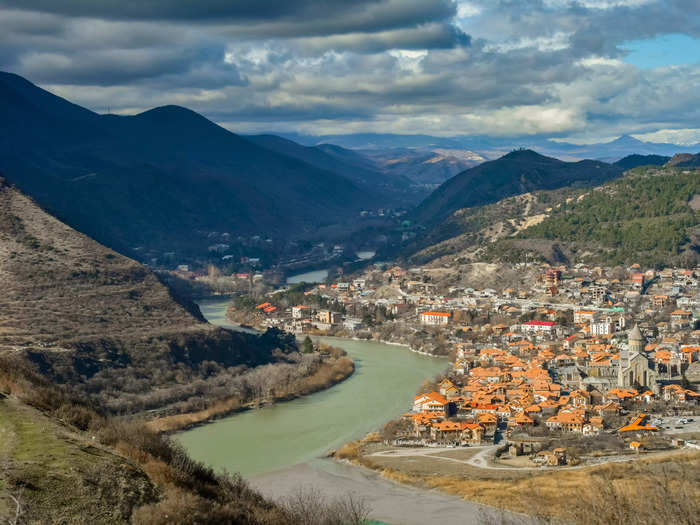
Georgia's digital nomad visa called "remotely from Georgia" was launched in 2020 and allows citizens of 95 countries around the world to live and work in the country for 180 days.
In order to qualify, applicants must make at least $2,000 a month and have health insurance, according to the Georgian news platform Agenda.
8. Netherlands: €2,634.30 (around $2,600) gross profit per month
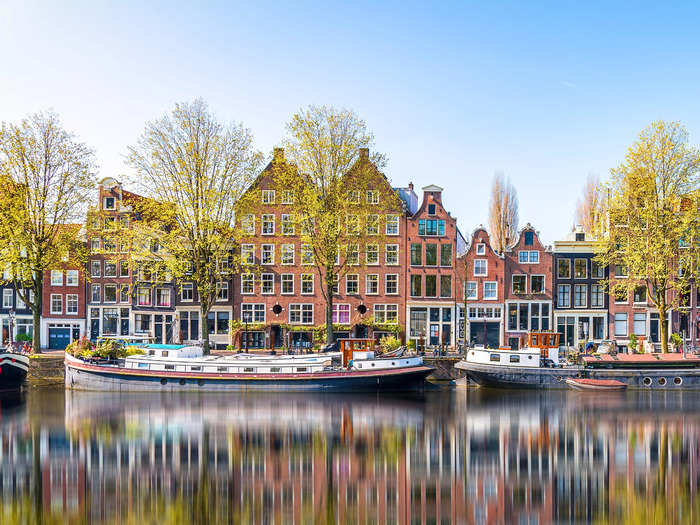
Digital nomads who make at least €2,634.30 in gross profit per month can apply to the Netherlands' "self-employed person residence permit."
The application process is comparatively more difficult than other digital nomad visas, as it is only open to freelancers whose work is considered "of essential interest to the Dutch economy," according to the Netherlands immigration agency.
If accepted, the residence visa is valid for a maximum of 2 years. Recipients must pay all applicable local taxes.
9. Malta: Minimum monthly income of €2,700 (around $2,675)

Malta's digital nomad program requires applicants to make a minimum monthly income of €2,700. Participants are completely exempt from any local income taxes, making it one of the most tax-friendly digital nomad visas.
The permit also doubles as a Schengen Area visa, allowing recipients to stay in 26 different European countries for up to 90 days at a time.
10. Latvia: Minimum monthly income of €2,857.50 (around $2,830)
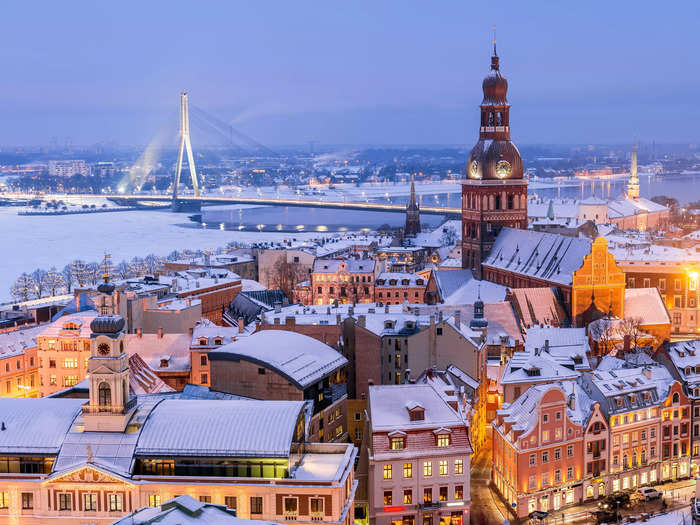
Latvia's digital nomad visa announced this February allows foreign nationals to work from the northeastern European country for up to one year, with the possibility of renewal.
In order to apply, your employer or business must be based in a country that is a member of the Organization for Economic Cooperation and Development, immigration news site SchengenVisaInfo.com reported.
Applicants must make 2.5 times the average monthly salary in Latvia, which currently equals €2,857.50 (around $2,830), per the Office of Citizenship and Migration Affairs. Recipients will be eligible for a reduced personal income tax rate, according to the European law firm Sorainen.
Popular Right Now
Popular Keywords
Advertisement